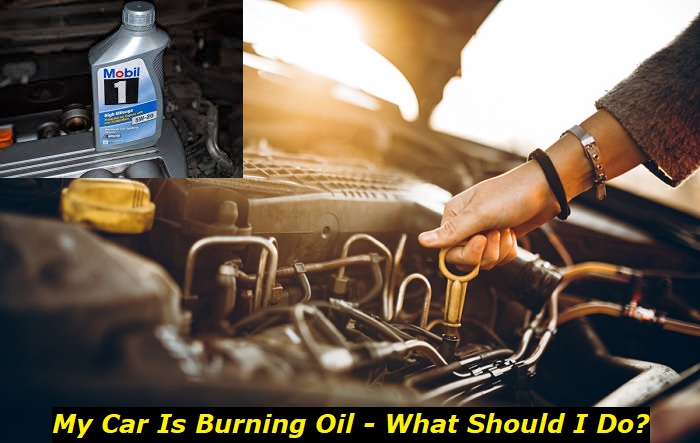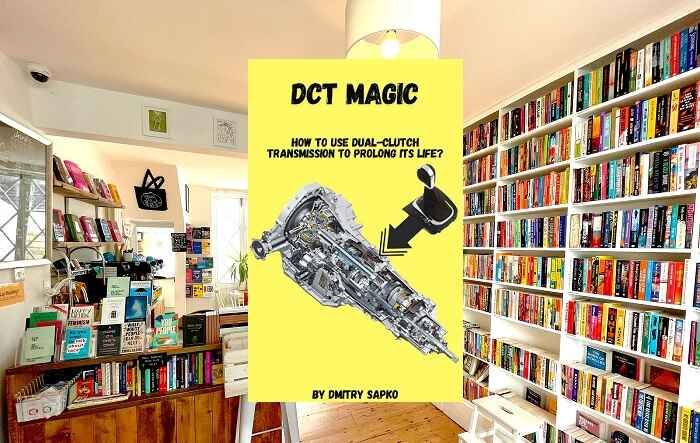Oil in vehicle engines is meant to lubricate everything when the powerplant is running. Otherwise, metal parts would scratch each other very quickly and the preciseness of the machine work would be lost forever. In modern engines, everything should be as precise as possible, so oil is extremely important for the healthy work of an engine.
Oil consumption highlights
- Level of urgency:high
- Average mileage:over 100,000 miles
- Repair cost:$900 - $3,500
- DIY repair:possible but extremely complicated
- Commonreasons:worn-out valve seals, piston rings, internal engine problems, turbocharger problems
- If ignored:fatal engine damage, catalytic converter contamination, EGR system contamination
- How to solve:replace the worn-out parts, inspect the engine for oil consumptionreasons

When is it OK that your vehicle's engine is burning oil?
We can't imagine how frustrated you were the first time you got that dipstick out of the engine and saw that the oil level is low. Probably, the first thing you did was to add some oil with your hands shaking a little and pour that oil all over the engine in your frustration. But there is no need to worry that much - sometimes it's just a normal thing.
All engines will burn a little oil inevitably. New engines don't do that significantly, so you can even avoid adding some oil in between changes. But older engines have some issues with their seals and gaskets, so the oil may leak and the level will naturally drop. It's not always telling you about some disastrous malfunctions in the engine.
Here are some of the natural reasons your engine has a low oil level:
- there is an external oil leak because of the bad oil filter thread, faulty O-ring in some unit, or failed gasket (not necessarily head gasket);
- there is an internal oil leak and the oil gets into the combustion chamber in little quantities and then gets burned;
- the oil is burned naturally because your engine is claimed by the manufacturer to burn some oil when driving and it's considered OK;
- the oil level dropped right after the oil change - it just penetrated the filter and so the level dropped, there is nothing to worry about.
All these reasons are just OK and don't need your actions. Just top up the oil so that it is closer to the "High" mark on the dipstick and keep driving. In most cases, you will not need any repairs or adjustments. Some engines are claimed to have some oil consumption of up to a liter of oil per 1000 miles and this is considered OK.
But if these sudden oil level drops are regular and your engine has started burning more than a liter of oil per every thousand miles you drive, this is a bad sign. Growing oil consumption is a clear sign that your engine needs some help. But before you get depressed, let's see what exactly can cause excessive oil consumption.
What are the reasons your engine is burning oil?
So, now you know that the majority of engines may burn some oil "legally" and this doesn't mean they need your attention. Just top up the engine oil and keep an eye on its level to avoid issues when the level drops too hard.
But what if the oil consumption is excessive and keeps growing? In this case, you will need to detect the problems that affect your engine's work and find which one of them is torturing your car. Let's see what the most common reasons for excessive oil consumption in your car are:
1. Head gasket or crankshaft seal
If you find out that one of these is causing problems, you may consider yourself lucky. If the gasket or seal is bad, they can leak oil. And if the leak is too bad, it can take over a liter of oil every single month out of your engine. Replacing the crankshaft seal is not too expensive while the head gasket replacement will need more time and money.
But anyway, these are the cheapest repairs you can end up dealing with if your vehicle is burning some oil.
2. Valve seals
The second most common reason is the problem with valve seals. Those are tiny rubber parts that seal out the valves. One part of the valve should be lubricated to avoid issues with overheating and scratching over other parts. While the head of the valve should not come in contact with oil. For this, the valve seal is used. But the seal is not eternal and it can go bad after about 100,000 miles or more.
If this happens, the seal will let some oil leak onto the head of the valve. This oil will then go to the combustion chamber and burn. Over time, this will form a massive oil level drop. Replacing valve seals is not easy - the head should be taken apart for this, in most cases.
3. Piston rings
Pistons in any gasoline engine have rings that hold the compression and hold out the oil. The system is pretty much the same as with valves: the lower part of the piston should be lubricated at all times while the upper part shouldn't come in contact with oil. If the oil ring on the piston goes bad, the certain cylinder may eventually leak some oil directly into the combustion chamber. It means that this oil will just burn.
Replacing oil rings is not easy at all. Almost the entire engine will have to be taken apart for this. The rings themselves are not expensive at all, but the labor is super expensive. The rings usually go bad at 100,000 miles or a little later.
4. Turbocharger leaks some oil
This is the underestimated reason that is not always inspected properly by specialists. But it's often one of the main reasons why your engine may leak oil. So, the turbocharger is lubricated at all times when the engine runs. Oil is sent to the turbo at high pressure. When something goes wrong and the turbo starts leaking oil, this oil immediately gets into the combustion chamber with the air.
This will cause massive black smoke, especially when you just start the engine. After that, the effect may be much less dramatic. But when the engine is stopped, the oil is gathered in the turbo in some amount. And when the engine is started, this amount of oil immediately gets into the combustion chamber.
Repairing your turbocharger is pretty hard. In most cases, mechanics will offer you a replacement option or will change the entire insides of your turbocharger which is not going to be cheap.
5. Bad or just inappropriate oil
We've seen several vehicles that used bad or inappropriate oil and ended up hanging on the car lifts in dealerships for weeks. If you notice that your vehicle burns some oil, check the oil quality. If the oil is not appropriate for your engine, the best thing you can do is to change it as soon as possible. Maybe, you can avoid consequences if you do it fast enough.
Bad oil will burn even in a properly working engine. But after some time, it will destroy your engine because of several important reasons:
- it won't lubricate all engine parts as needed;
- it will form buildup when burning;
- it will contaminate your engine fast;
- the level will drop and you may not notice the dangerous moment.
Don't ever experiment with oil. Buy OEM oil or any other good-brand oil that is recommended for the engine in your vehicle. Also, don't think that cheap oil will save you some money. It will only accelerate your engine wear.
When isn't your engine worth repairing?
If you notice excessive oil consumption, it's important to understand if your engine is still worth investing some money in. You may feel emotional about your old car, but it's not only about your affection, it's about your wallet.
We don't recommend repairing your engine and solving the oil-consumption issues in these cases:
- the engine has already been repaired once with the same problem;
- the oil consumption is insane, the engine has several problems connected to it;
- the engine has over 250,000 miles on it;
- the transmission is also showing signs of soon death;
- the vehicle has severe problems with metal body parts;
- there are multiple other problems with your car engine.
If one or several of these bullet points are true for your vehicle, we believe it's better to sell it right now when it still runs. Some mechanics may buy it, then they will invest their time in repairing it and resell it as a car in good condition.
But if you start investing money in it, you will probably pay for labor and parts more than the residual value of your vehicle. Repairing engines is extremely expensive because of high labor costs. Any DIY repairs are only possible if you have great experience in this.
About the authors
The CarAraC research team is composed of seasoned auto mechanics and automotive industry professionals, including individuals with advanced degrees and certifications in their field. Our team members boast prestigious credentials, reflecting their extensive knowledge and skills. These qualifications include: IMI: Institute of the Motor Industry, ASE-Certified Master Automobile Technicians; Coventry University, Graduate of MA in Automotive Journalism; Politecnico di Torino, Italy, MS Automotive Engineering; Ss. Cyril and Methodius University in Skopje, Mechanical University in Skopje; TOC Automotive College; DHA Suffa University, Department of Mechanical Engineering






Add comment